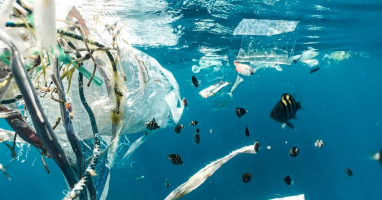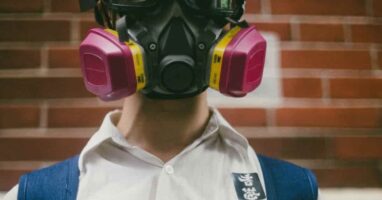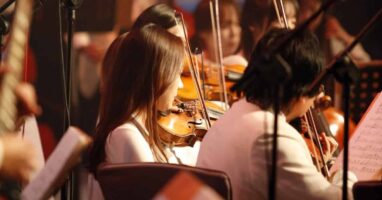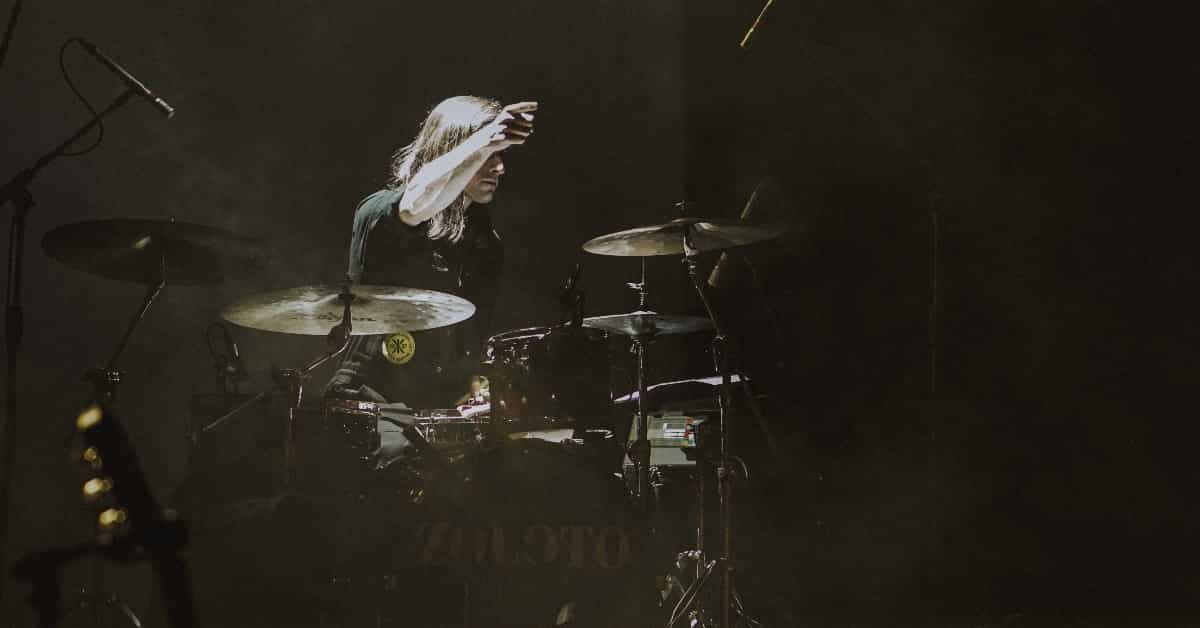I wrote this article in Japanese and translated it into English using ChatGPT. I also used ChatGPT to create the English article title. I did my best to correct any translation mistakes, but please let me know if you find any errors. By the way, I did not use ChatGPT when writing the Japanese article. The entire article was written from scratch by me, Saikawa Goto.
Introduction
Movies and books covered in this article

I will write an article about this movie/book
What I want to convey in this article
Because they choose to “live with able-bodied people,” their status as “disabled” is confirmed.



I had never looked at things from such a perspective, so it was refreshing.
Three takeaways from this article
- “Hearing loss” is considered a “disability” because it creates problems in “communication and cooperation with able-bodied people.”
- “Hearing loss” is only a “problem” on the level of “obesity or hay fever” when it comes to living with others with the same disability.
- Of course, able-bodied people should make efforts to create a society that is less burdensome for those with disabilities.



This movie makes us confront with a very difficult question that cannot even be imagined, “What would I do if it were me?”
Self-introduction article


Please refer to the self-introduction article above to learn about the person writing this article. Be sure to check out the Kindle book linked below as well.


Published Kindle books(Free on Kindle Unlimited)
“The genius Einstein: An easy-to-understand book about interesting science advances that is not too simple based on his life and discoveries: Theory of Relativity, Cosmology and Quantum Theory”
“Why is “lack of imagination” called “communication skills”?: Japanese-specific”negative” communication”
The quotes used in this article are based on notes taken at the movie theater from movies in Japanese and are not direct quotes from the foreign language original movies, even if they exist.
What Reality will the Protagonist Face as He Struggles to Decide Whether He Should Live in “a World that Does Not See ‘Disability’ as Something to be ‘Cured'”?


I have participated in an event called “Dialogue in Silence” before.


It is an event where you wear headphones and experience the world of deaf people where you can’t hear any external sounds. Originally, it started as an event called “Dialog in the Dark”, where you experience the world of visually impaired people in complete darkness, and I have also been there.
Speaking of fun, “Dialog in the Dark” was more attractive, wasn’t it?



I realized that if I can’t see, I really can’t do anything.


In complete darkness, I quickly realized that regular communication didn’t work, and my thoughts turned to “what should I do?”. On the other hand, in “Dialogue in Silence”, I accidentally tried to rely on hearing for communication. I had to switch my thinking multiple times and said to myself, “Oh, right, they can’t hear me”.
This experience doesn’t mean that I can understand how people with hearing impairments feel. However, I think that having had this kind of experience, even if only a little, was significant in watching this movie. You can have some idea of how much our “routine” communication relies on our ears, or the difficulties caused by the fact that a hearing impairment is harder to see than a visual impairment.


In this movie, the protagonist who plays the drums in a band suddenly loses his hearing. When faced with such a reality, what kind of life can we choose?
It’s tough enough to lose his hearing, but being a band member makes it even harder.



I’m not sure I could recover from that.
“The Facility Leader’s Words” Make Us Think about How to Deal with “Disability.”


The protagonist who lost his hearing starts living in a community of hearing-impaired people through a friend’s introduction. It’s an environment where everyone lives together in a facility.


At first, the audience probably won’t think much about this facility and will just follow the story. It could come to the understanding roughly that it’s a place where people with the same disability help each other. That’s how I roughly thought about it too.


However, it is unclear whether such a style is common in the West, but this facility has a clear operational policy. It becomes clear in the latter half of the movie that the protagonist’s life changes significantly before and after the scene where the facility director articulates this policy.
You already know the conviction here. Hearing impairment is not a handicap, nor is it something that needs to be cured. This place is operated based on that belief.
By combining the facility director’s words and the protagonist’s decision, we can understand what this movie is questioning.


It can be put simply as a choice between ‘living as a person with a unique trait of not being able to hear’ and ‘living as a person with a disability.
It was like, “I see, so this is the theme of the work,” wasn’t it.



In a way, this is also a movie targeted towards “able-bodied” individuals.


Why is being “unable to hear” considered a “problem”? There may be many answers, but overall, it is because it creates difficulties in living with non-disabled people. This is easier to understand if you consider a condition that is not called a “disability. For example, being “overweight,” “having slow legs,” or “not being able to drink alcohol” are never called “disabilities.” That is because they do not create difficulties in living with non-disabled people.
In other words, that’s what it means that it is precisely because people choose to live with non-disabled people that “not being able to hear” is called a “disability,” and they end up living in the non-disabled world as “people with disabilities.”


However, does that have to be the only choice? This movie confronts us with that question.
The facility where the main characters live together believes that “hearing impairment is not a handicap.” The reason it is considered a “handicap” is simply because one chooses to live in a world of non-disabled people. At this facility, the basic policy is to create a community of only “individuals with hearing impairment” and to build a life within that community that is not based on being a “person with disabilities,” without much consideration for living with non-disabled people.



I felt like “I had never considered so,” partly because I and others around me hadn’t really had much to do with “disability”.
Certainly, the indicate that “you become a ‘person with disabilities’ because you choose to live in a world of non-disabled people” is thought-provoking.


In a community where only people with hearing impairments exist, everyday life seems very “natural”. Of course, there will be “inconveniences” in life here and there, but it’s the same in the world of able-bodied people. “It’s difficult to go up and down stairs because I’m overweight,” “I can’t reach things on high shelves because I’m short,” and “I’m sensitive to the cold, so winter is especially tough” are just a few examples of various things that cause “inconveniences” in life that are not called “disabilities”.


So ultimately, the biggest problem with “having a disability” is “communication and collaboration with able-bodied people”. Therefore, if you can live without worrying about that, most of the problems with “having a disability” disappear.


Through observing the way of life in this facility, that point was conveyed very strongly.
Of course, this is something that can exist because it is a “community that people with hearing disabilities have come up with and are operating on their own initiative.” It would not be correct for able-bodied individuals to say, “Why don’t you create a community with people who have the same disabilities?” Therefore, it is quite difficult for me to write about this from the perspective of an able-bodied person, but I felt that it could be considered as “one of the options”.



The existence of choices other than “how to keep pace with able-bodied people” feels important.
However, the difficulty of that is also depicted in this movie.


Of course, I understand that it’s not that simple. The movie depicts just how difficult it can be. The main character feels a deep connection with the female vocalist in the same band, as if they are “connected by their souls.” In other words, giving up on “living with non-disabled people” would also mean giving up on life with her.
Regardless of the current situation, it takes a lot of courage to let go of “living with non-disabled people.” That’s why non-disabled people need to think about “how to create a society where people with disabilities feel less resistance.” In addition to this, I feel it would be ideal for people with disabilities to have the option of “not living with non-disabled people.”


If I were to suffer from some kind of disability and there was a “community only for people with the same disability” in front of me, I wonder what decision I would make.
Content Introduction
Ruben, who plays drums and has a metal band with his girlfriend Lou as the vocalist, travels around the country with all the equipment packed in their car and makes a living from tour sales. Lou has scars from cutting her wrists, and Ruben was once addicted to heroin. They support each other’s existence and have a deep bond that is not just “lovers” or “bandmates.”




One day, just before a live rehearsal, Ruben felt an abnormality in his ear. He managed to get through the live performance that day, but his tinnitus was severe and his hearing was very abnormal. Unable to bear the change, he went to a pharmacy, but his hearing had already deteriorated to the point where he couldn’t even have a conversation with the pharmacist.
After seeing a doctor, Ruben received a despairing diagnosis that due to his rapidly deteriorating hearing, he would have to somehow manage with the little hearing he had left.


The two of them were at a loss, but they were able to get introduced to a community of people with hearing impairments through an acquaintance. However, if they decided to live in that facility, they would have to live separately from Lou. He was even prohibited from using his cellphones and contacting each other. Ruben strongly refused to accept such a situation, but Lou persuaded him that he needed support, and he reluctantly started living in the facility.
Of course, he started from scratch, not knowing any sign language, and had to live his lives groping in the dark for a while…


Impression
As mentioned at the beginning of this article, the theme of this movie, “whether to choose to live with non-disabled people or not,” is not clearly stated until later in the film. Of course, some may have understood it by being separated from Lou and being told not to contact her early on in the movie. However, I thought it was a measure to temporarily separate from the world of non-disabled people, and therefore did not realize that a serious question of “whether to live with non-disabled people or not” was being presented.


Ruben cannot give up on “living with non-disabled people” for various reasons. The biggest reason is, of course, the presence of his girlfriend Lou, but being a musician is also a big factor. It’s difficult to let go of the world that he has lived with music.



Unless one is a genius like Beethoven, one would not be able to continue their musical career with losing their hearing.
It must also be tough for “blind people” like Stevie Wonder or Nobuyuki Tsujii, but it’s almost impossible to do music without being able to hear.


If Ruben had been born with a hearing impairment, he would not have been forced to make such a decision. However, Ruben lost his hearing after obtaining something precious, “Lou” and “music”. The reality that Ruben faces is not only “not being able to do the things he used to be able to do,” but also “not being able to be in the community he used to be in because of it,” which is a double whammy and makes us feel that the reality Ruben faces is really painful.




I try to imagine what I would do in that situation, but I just can’t. It’s not a problem that can be solved by theoretical discussion alone.
One thing that left an impression on me besides the story itself was the sound design. The movie was built with sound that reproduces how the world sounds to Ruben as he’s losing his hearing. I thought it was a very distinctive aspect of this film.


I can’t even imagine how they recreated “how sound is heard by people with hearing impairments”, so I can’t say how realistic it is. However, if the “way of hearing” shown in this movie is accurate, I felt that “it might be better to be completely unable to hear.” What I experienced in “Dialogue in Silence” was “complete silence,” but what Ruben is experiencing is a “world full of uncomfortable noise.” If they are exposed to such a noisy world all the time, I felt like they would go crazy just from that.



It was just like “dissonance,” wasn’t it?
It’s a little scary to think that it would be like that all the time.
It can also be said that it is an interesting work in the sense that you can experience the world of people with hearing impairments.
Conclusion
While watching the movie, I couldn’t help but think, “If there wasn’t someone like Lou for Ruben, would the situation have been different?” This question probably wouldn’t make sense in normal circumstances. This is because if Lou weren’t there, Ruben wouldn’t have been able to recover from his heroin addiction and probably wouldn’t have been able to live a proper life in society in the first place.


However, if we ignore such circumstances, I couldn’t help but think that Ruben without Lou might have made a different decision from this movie.
This is a movie that portrays a situation that is not easy to understand and straightforward, and I think it will surprise you with the difficulty of imagining “what would I do if it were me?”.


Published Kindle books(Free on Kindle Unlimited)
“The genius Einstein: An easy-to-understand book about interesting science advances that is not too simple based on his life and discoveries: Theory of Relativity, Cosmology and Quantum Theory”
“Why is “lack of imagination” called “communication skills”?: Japanese-specific”negative” communication”







コメント